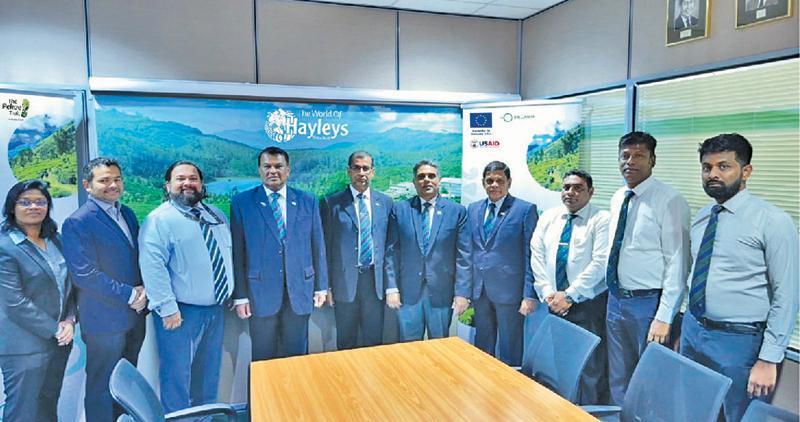
Hayleys Plantations has embarked on a partnership with “The Pekoe Trail,” a sustainable initiative aimed at revitalising the tourism sector.
Comprising three major Regional Plantation Companies (RPCs), Kelani Valley Plantations PLC (KVPL), Talawakelle Tea Estates PLC (TTEL), and Horana Plantations PLC (HPL), Hayleys Plantations represents 4.6% of Sri Lanka’s total tea production. The Pekoe Trail cuts across six of its 44 prime tea estates, situated within scenic high and mid grown tea trails, providing the perfect platform to promote Ceylon Tea to a global audience.
Hayleys Plantations Managing Director Dr. Roshan Rajadurai said: “Our shared objective is to rebuild our nation, while creating sustainable value for all. We firmly believe that the future of Ceylon Tea lies in innovative yet sustainable growth concepts that prioritise environmental conservation and the well-being of all stakeholders.
“Through this foray into sustainable tourism, Hayleys Plantation is resolute in upholding this philosophy, creating a unique cultural experience that fosters shared benefits for all involved,” he said.
Sri Lanka has a renowned reputation for its exquisite teas, each possessing an unmatched, unique flavour profile. When coupled with captivating tourist destinations steeped in rich history, this creates the perfect opportunity to provide a sustainable and innovative experience through a tea tourism strategy.
The sustainability-focused design of The Pekoe Trail also perfectly aligns with Hayleys Plantations’ philosophy of ‘slow tourism,’ which involves leisurely travel to immerse oneself in culture and sustainability.
Spanning 300 kilometres across 22 sections, this trail enables travellers to explore the tea country on foot, minimising the carbon footprint per visitor. The captivating tour permits visitors to witness the artisanal process from leaf to cup, including tea leaf picking with harvesters, a visit to the factory led by an experienced tea planter, and a tea tasting experience.
Tea Centres are being set up at key locations, offering enthusiasts and weary trekkers a chance to savour the finest cups of fresh single estate teas. The experience caters to diverse segments, offering tourists a range of accommodation options from luxurious plantation bungalows to cosy cabanas, strategically located near The Pekoe Trail’s historic and scenic sites.
MD Rajadurai said, “By diverting tourists and economic value creation into lesser-explored regions, The Pekoe Trail creates opportunities for interior estate communities to flourish and benefit from the tourism-related prospects that will emerge along these historic tea trails.” This approach aims to foster appreciation and drive global demand for the distinctive national ‘Ceylon Tea’ brand and exceptional single estate teas, serving as an opportunity for the world to witness the ethical and sustainable practices on-ground.
Project Director of the Tourism Resilience Project, Shehan Ramanayake said, “This latest partnership between The Pekoe Trail and Hayleys Plantations will not only catalyse low impact, high-value tourism within the tourism sector, but will also provide an opportunity to support the sustainable development of Sri Lanka’s 150-year-old plantation industry.”
The project is developing The Pekoe Trail with funding from the European Union and additional support from The United States Agency for International Development.
